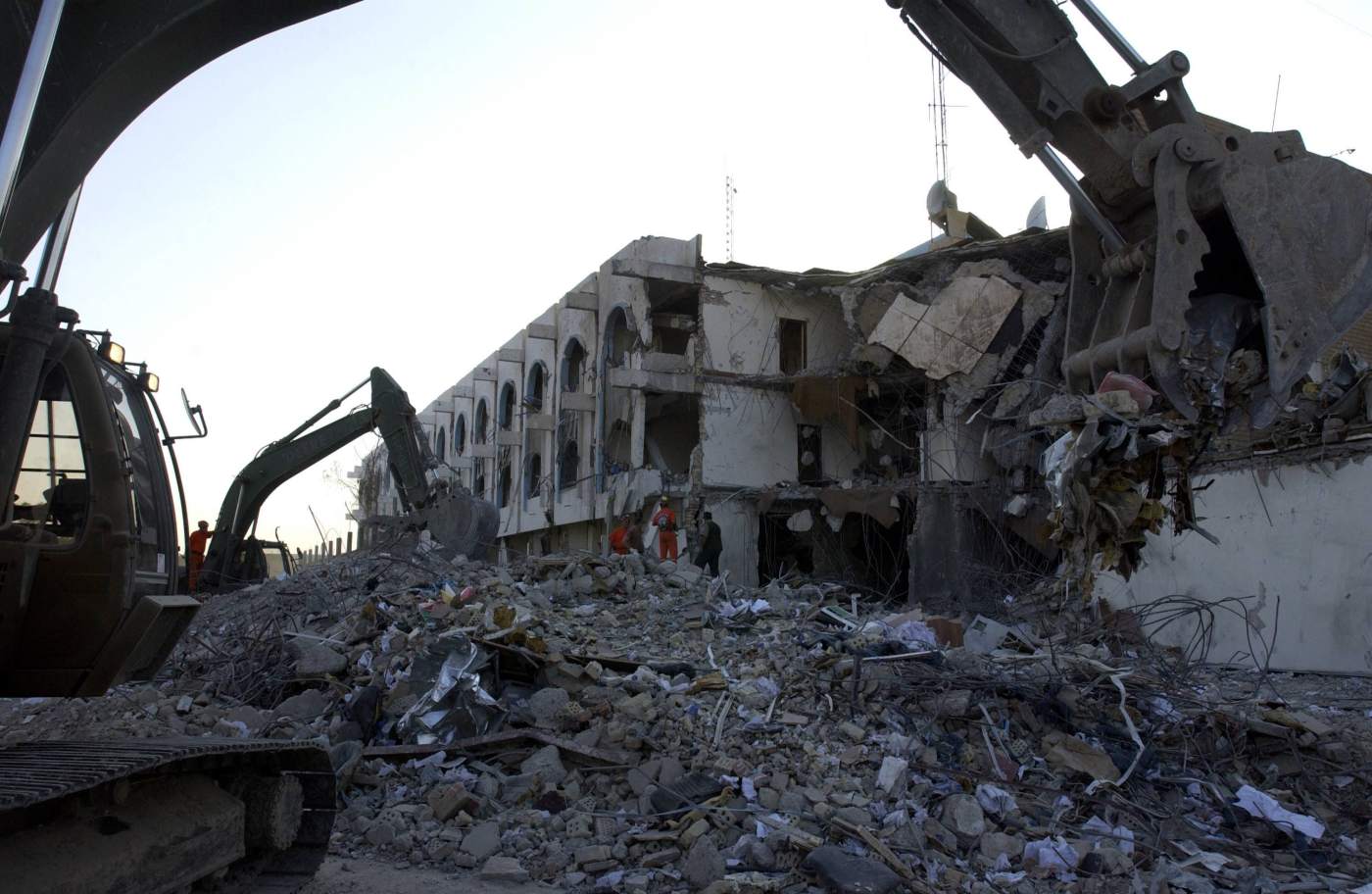To listen to television pundits from mid-August on through today, the world is imploding in on itself. The events in Ferguson revealed that the wounds of racial division in America remain deep. The Middle East is in a heightened state of conflict. Ebola is ravaging western Africa, with fears that it will spread throughout American shores. ISIS is advancing a particularly rigid form of Islamic statecraft. ISIS is beheading Western journalists.
But a blip on the radar that we in America often overlook—religious persecution—became an international moment. News accounts reported that ISIS was beheading and crucifying Christians. With visceral graphics, we saw Iraqi Christians fleeing their homes in droves, abandoning areas that were once the geographic origins of Christianity’s eventual global expansion.
Christians in America expressed solidarity with their persecuted brethren. One popular way was to change your social media avatar to the Arabic letter “ن,” or “n”—the symbol ISIS used to brand Christians for identification that stands for “Nazarene,” a reference to Jesus of Nazareth.
A lot of cynics criticized the effort as a half-hearted gesture. But in an age where twitter has, quite literally, sparked political revolutions, this admittedly small action helped us in America understand that our brothers and sisters in far off lands were the victims of religious cleansing. Imagine, if you will, what your reaction would be if it was your brother, or your sister, crucified because of his or her allegiance to King Jesus.
And let me be clear: These are our brothers and sisters. When the Scriptures speak of the body of Christ, they do so in familial tones (John 1:12-13). In a mysterious way, the gospel overcomes ethnic boundaries and unites a new people in Christ (Eph. 2:19-22). American Christians and Middle Eastern Christians will face a geographic barrier in our ability to know one another, but it should not affect our ability to relate or sympathize with one another. How, thousands of miles away, can Christians demonstrate love and solidarity for their persecuted brethren? We can pray, engage, and remember.
How should we pray for the church persecuted church?
Pray for religious liberty. If you want to see the slaughter of Christians ended, the affairs of geo-political politics in these countries will have to change. Religious freedom requires political stability. We must pray for the lands where Christians find themselves persecuted be given not just religious toleration, but religious freedom. Nowhere in the world is there political stability and not also religious liberty. We must pray for the authorities of these lands, that they would protect the freedom of religion and protect vulnerable religious minorities (1 Tim. 2:1-2).
Pray for perseverance. While persecution is expected (1 Pet. 4:12; 2 Tim. 3:12), it doesn’t make the experience any more routine. We must pray that our brothers and sisters experience a peace that surpasses understanding (Phil. 4:7). We must pray that they hold fast to the good confession of faith (Heb. 10:23).
Get engaged. Opportunities to engage in small and large acts of solidarity are endless. As I was writing this, it was announced that Hollywood producer and Christian filmmaker Mark Burnett is launching a campaign to raise $25 million for displaced Iraqi and Syrian Christians. Additionally, Voice of the Martyrs, a non-profit organization, helps raise awareness and assist those within the global, persecuted church.
We must remember. Hebrews 13:3 states “Remember those who are in prison, as though in prison with them, and those who are mistreated, since you also are in the body.” Jesus states that any persecution of his followers is a persecution of him (Acts 9:4). Remembering is a small act, but it is an act that calls us to pray and give voice to those without a voice.


